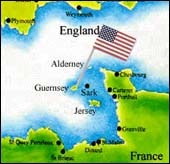An alert reader sent me a story suggesting that the Burmese ruby wedding ring that Facebook mogul Mark Zuckerberg gave his wife might have been imported illegally into the United States. The article is largely speculative, given that there is no direct evidence that the ring was illegally imported, but it does provide the opportunity to discuss the Burmese import sanctions, which likely will remain even after the recently announced lifting of the ban on financial investments in, and export of financial services to, Burma.
By Executive Order 13310, dated July 28, 2003, imports of all items, including rubies, of Burmese origin into the United States were prohibited. Shortly thereafter, in November 2003, the Office of Foreign Assets Control (“OFAC”) issued an interpretive guidance that items of Burmese origin could be imported into the United States if they were substantially transformed outside Burma such that under U.S. Customs rules they were no longer considered to be of Burmese origin. In December 2004, Customs issued a ruling that rubies mined in Burma but processed into finished gemstones in other countries were not of Burmese origin and could be imported into the United States. This opened the door to the return of Burmese rubies to the U.S. market.
Congress responded with the Tom Lantos Block Burmese Jade (Junta’s Anti-Democratic Efforts) Act Of 2008, PL 110-286 (50 U.S.C. § 1701 note). The Lantos Act, effective September 27, 2008, prohibited the import of rubies mined in Burma even if they have been processed outside Burma.
So, assuming that the ruby was finished outside Burma, the Zuckerberg ruby would need to have been imported into the United States prior to the aforementioned date in 2008. If not (and we have no way of knowing), Zuckerberg might wind up getting unfriended by OFAC.

 Posted by
Posted by  Category:
Category: 


 Qiang Hu, a Chinese national who was sales manager at
Qiang Hu, a Chinese national who was sales manager at  A recent
A recent 
 In today’s civil penalty releases, the Office of Foreign Assets Control (“OFAC”)Â
In today’s civil penalty releases, the Office of Foreign Assets Control (“OFAC”)Â 

